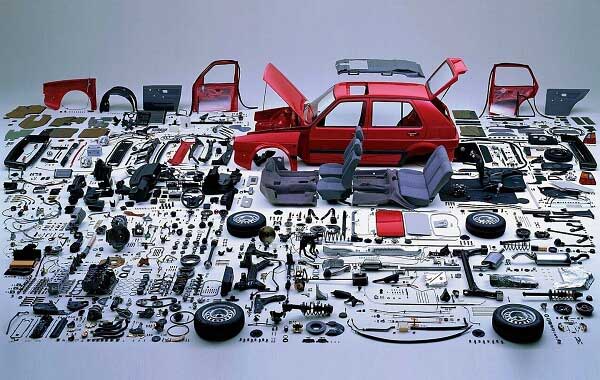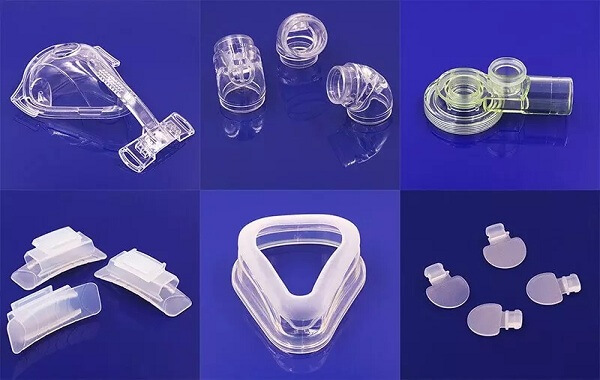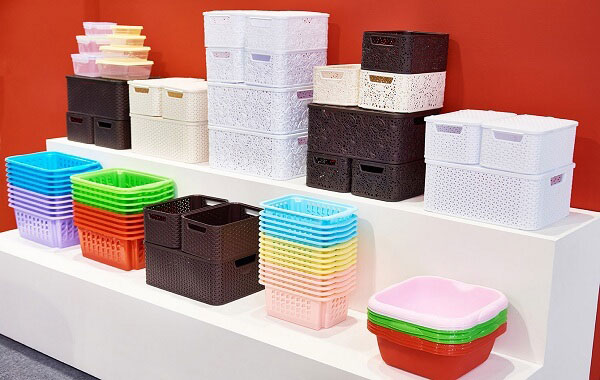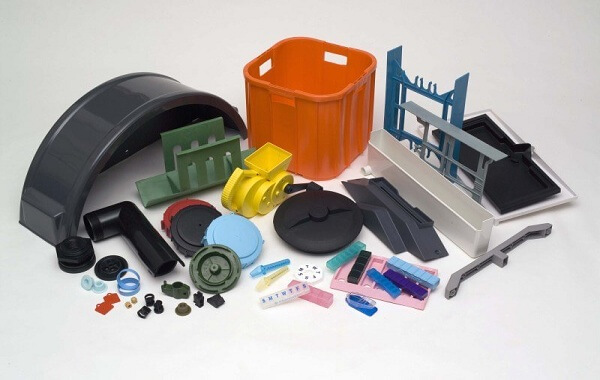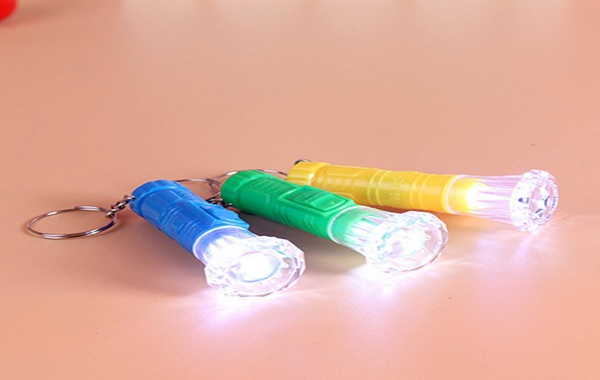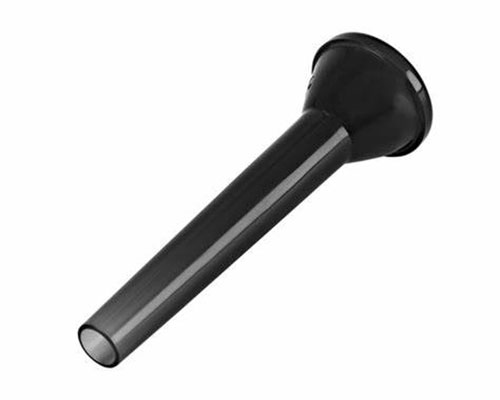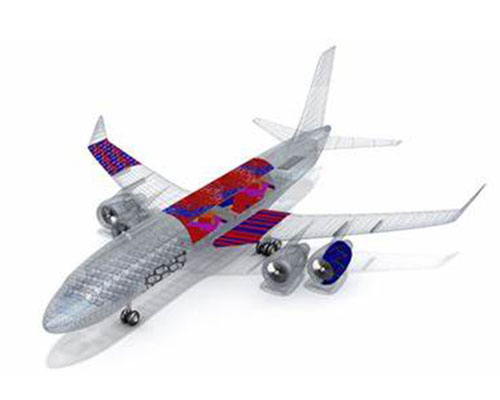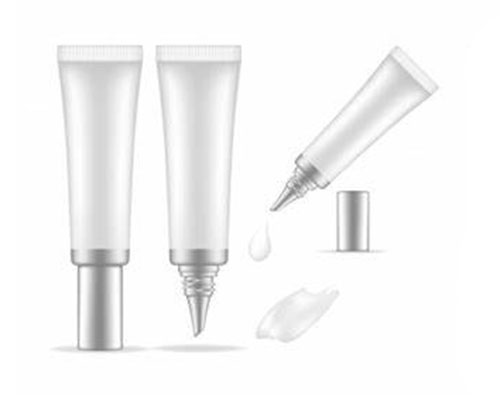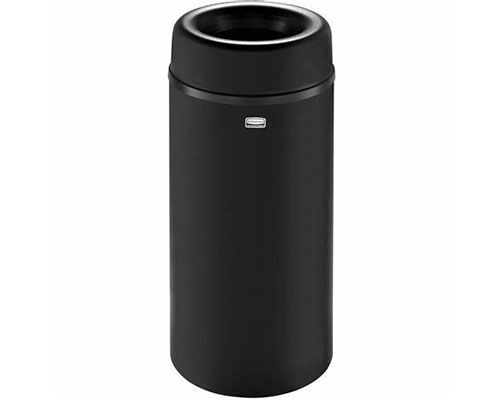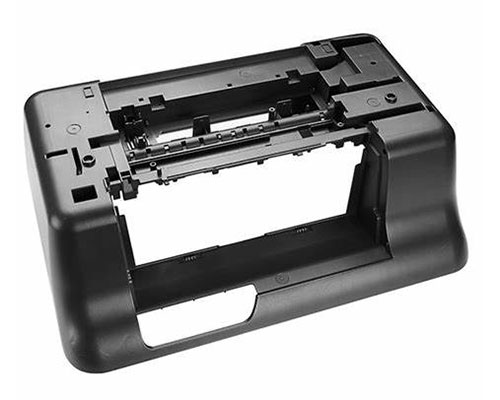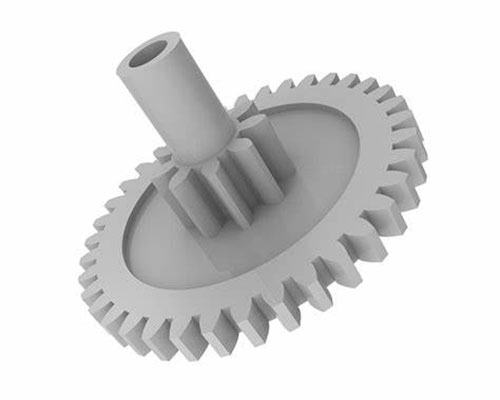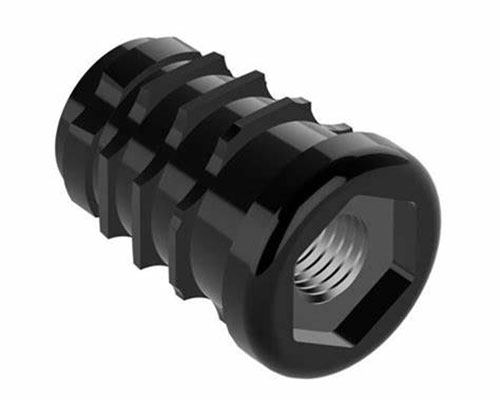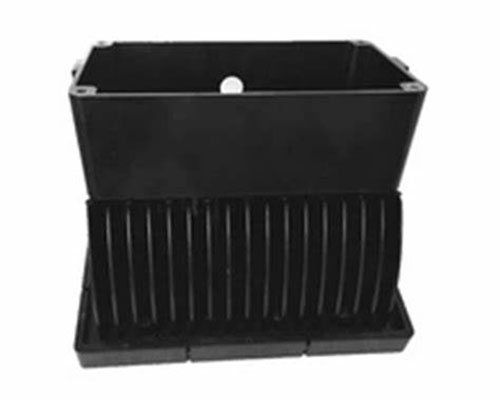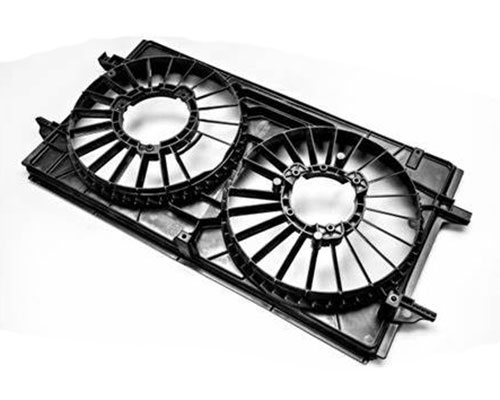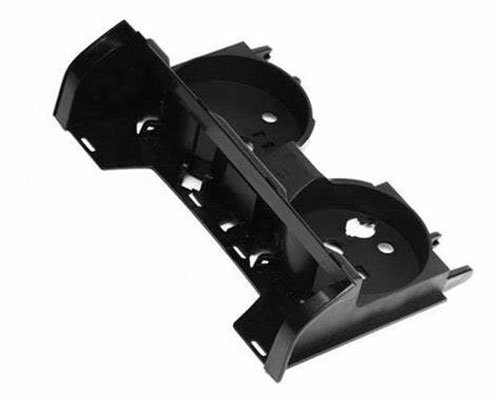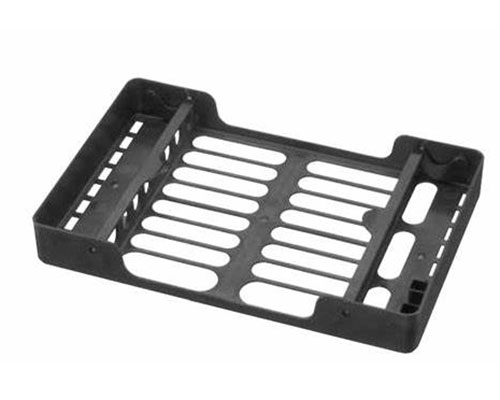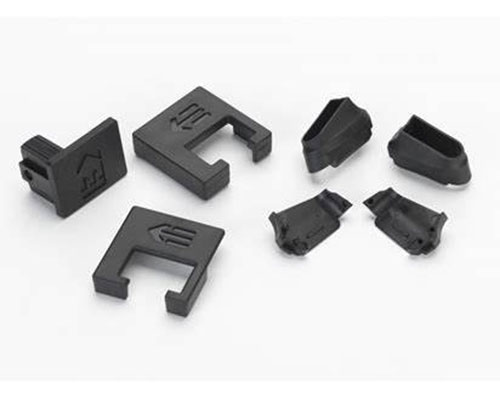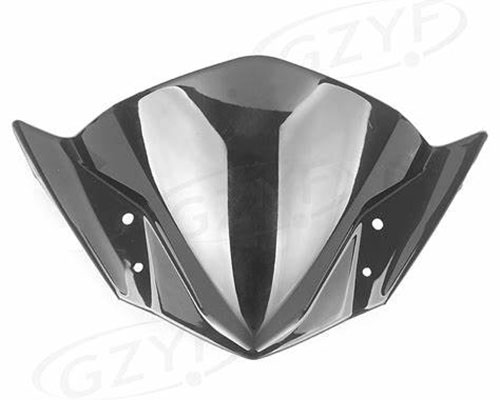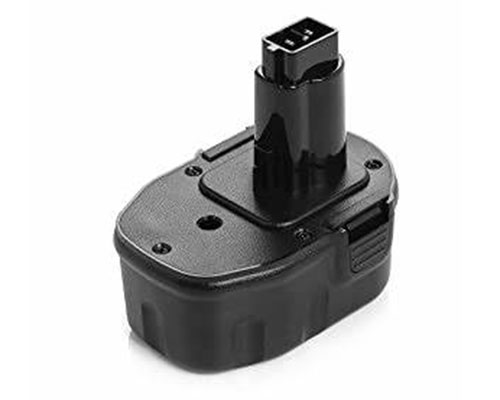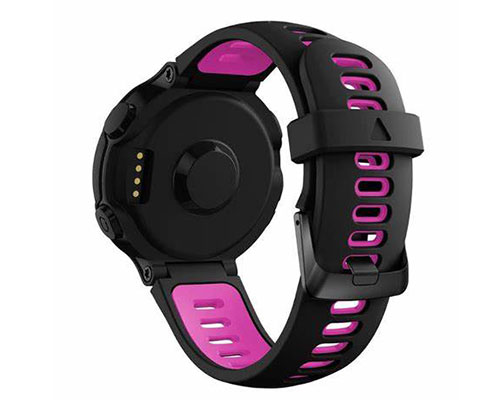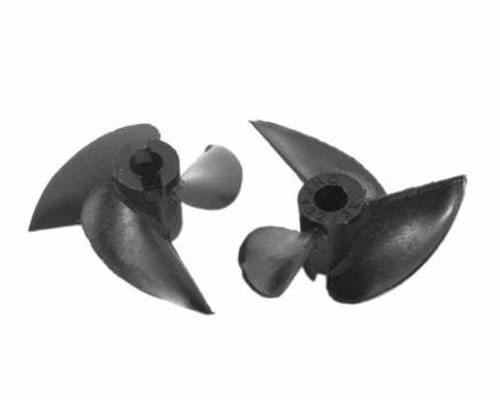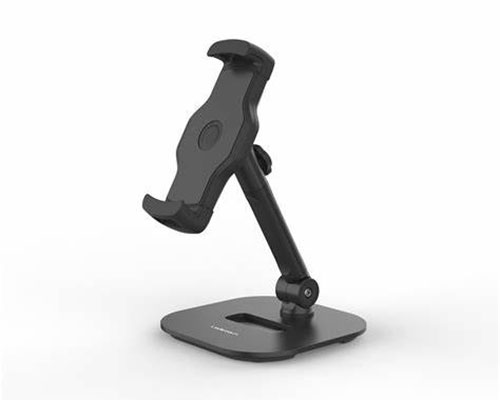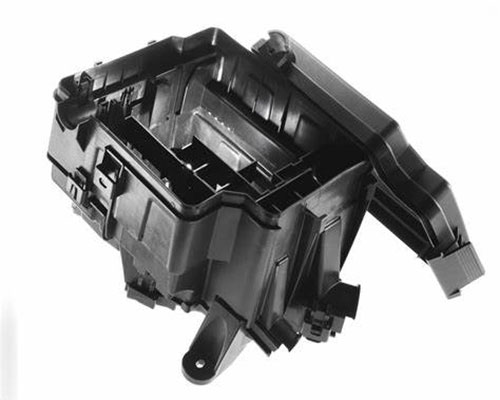Plastic Metal Parts Applications
Plastic metal parts, crafted through advanced manufacturing techniques, play a vital role in our daily lives. These versatile components find applications across various industries, from automotive to consumer electronics and beyond. Despite certain limitations on shape and complexity, the diversity of materials available for plastic metal parts allows for their use in a wide range of products.
From car bumpers to protective goggles, and even everyday items like food containers and bottle caps, plastic metal parts are everywhere. The initial investment in setting up production lines for these parts might be significant, but the long-term cost savings make it a worthwhile endeavor. This approach not only enhances product durability but also offers economic benefits in the long run.
Plastic Metal Parts Applications: Versatility Across Industries
Plastic metal parts have become super popular because they're accurate, efficient, and versatile. Imagine this: a mold gets filled with melted plastic under high pressure, then it cools down and solidifies into the final product.
One big plus of using plastic metal parts is their ability to create really intricate designs consistently. That’s why you see them everywhere—from cars to medical devices.
In cars, for example, bumpers, dashboards, and door panels are often made from these materials. They're light yet strong, and you can customize the design easily. Plus, making complex shapes that would be tough with traditional methods is a breeze with plastic metal parts.
In medicine, things like syringes, tubes, and implants are often crafted using these techniques. It's crucial for these items to be safe and effective, so having a process that ensures consistent quality and precision is key.
When it comes to everyday items, think toys, kitchen gadgets, electronics, and packaging—they’re all commonly made with plastic metal parts. Businesses love this method because it's cost-effective and allows for custom designs and colors.
Another great thing about plastic metal parts is their potential for sustainability. Many types of plastic can be recycled, and the process itself generates very little waste. Plus, creating lightweight, durable products helps save on materials and energy during transportation and packaging.
Overall, plastic metal parts are a flexible and effective way to produce a wide range of items across various industries. Their potential for sustainability, along with their ability to consistently create complex shapes and patterns, makes them a top choice for companies looking to launch innovative products.
FAQ about Plastic Metal Parts Applications
What are the primary applications of plastic metal parts in the automotive industry?
Plastic metal parts, also known as polymer metal hybrids, are widely used in the automotive industry due to their unique combination of properties. These parts are often found in bumpers, dashboard panels, and interior trim components where they offer both durability and lightweight characteristics. By integrating plastic with metal, manufacturers can create components that are not only strong but also resistant to corrosion and impact. Additionally, these materials help in reducing the overall weight of vehicles, which contributes to improved fuel efficiency and lower emissions.
How do plastic metal parts enhance product durability?
The integration of plastic and metal in part manufacturing significantly boosts product durability. Plastic metal parts benefit from the strength and rigidity of metal while also gaining the flexibility and resilience of plastic. This combination allows for the creation of components that can withstand harsh environmental conditions, mechanical stresses, and prolonged usage without deteriorating quickly. For example, in consumer electronics, such parts can endure drops and impacts better than traditional materials, ensuring a longer lifespan for the devices.
Are there any environmental benefits to using plastic metal parts?
Absolutely, there are several environmental benefits associated with the use of plastic metal parts. Firstly, these parts are often lighter than their all-metal counterparts, which means less material is required during production. This reduction in material usage leads to decreased energy consumption and lower carbon emissions during manufacturing and transportation. Moreover, plastic metal parts can be designed for easier recyclability at the end of their life cycle, promoting a circular economy. By choosing these hybrid materials, companies can reduce their environmental footprint and contribute to more sustainable practices.
What industries commonly utilize plastic metal parts besides automotive?
Besides the automotive industry, plastic metal parts are extensively utilized in various other sectors. In the aerospace industry, these parts are crucial for manufacturing aircraft components that need to be both lightweight and incredibly strong. The consumer electronics industry also benefits greatly from these materials, especially in creating durable yet sleek device casings and internal structures. Additionally, the medical field employs plastic metal parts in the production of surgical instruments and implants, where biocompatibility and strength are essential. Each of these industries leverages the unique properties of plastic metal parts to enhance product performance and reliability.
Can plastic metal parts be customized for specific applications?
Yes, one of the significant advantages of plastic metal parts is their high degree of customization. Manufacturers can tailor these parts to meet specific requirements regarding size, shape, strength, and functionality. Advanced manufacturing techniques like injection molding and 3D printing enable precise control over the part's design and properties. This flexibility makes plastic metal parts ideal for a wide range of applications, from specialized machinery components to intricate consumer products. Whether it's a unique fastener or a complex structural element, these parts can be customized to fit the exact needs of any project.
How do plastic metal parts compare to traditional metal parts in terms of cost?
When comparing plastic metal parts to traditional metal parts, cost considerations can vary based on several factors. Generally, the initial material cost for plastic metal parts might be higher due to the specialized nature of the materials and the advanced manufacturing processes involved. However, this is often offset by the reduced need for secondary finishing treatments and the lower costs associated with transportation and assembly, thanks to their lighter weight. Over the long term, plastic metal parts can offer cost savings through improved durability and reduced maintenance requirements. Therefore, while the upfront investment might be higher, the overall cost-benefit analysis often favors plastic metal parts.
What are some common challenges when working with plastic metal parts?
Working with plastic metal parts does come with its set of challenges. One common issue is ensuring proper adhesion between the plastic and metal components, as different materials can have varying surface energies and coefficients of expansion. This requires careful selection of adhesives and bonding techniques to achieve a strong, lasting connection. Another challenge lies in the recycling process; separating the plastic from the metal for recycling can be difficult and costly. Additionally, there may be limitations in terms of temperature resistance; extreme heat can affect the integrity of plastic components while excessive cold can impact metal parts. Overcoming these challenges often involves innovative engineering solutions and careful material selection.
How do you ensure the quality and consistency of plastic metal parts during production?
Ensuring the quality and consistency of plastic metal parts during production involves rigorous testing and quality control measures. Manufacturers typically conduct extensive material testing to verify the mechanical properties, chemical resistance, and thermal stability of the parts. During the manufacturing process, real-time monitoring systems are employed to detect any deviations from specified parameters. Non-destructive testing methods like X-ray inspection and ultrasonic testing are also used to identify internal defects without damaging the parts. Furthermore, maintaining strict adherence to standardized production protocols helps guarantee consistent quality across all batches. By implementing these practices, manufacturers can produce reliable and high-performing plastic metal parts.
What role does innovation play in the development of new plastic metal part applications?
Innovation plays a crucial role in expanding the application possibilities for plastic metal parts. Researchers and engineers continuously explore new materials and advanced manufacturing techniques to enhance the performance and versatility of these parts. For instance, nanotechnology has been employed to develop composite materials with even greater strength-to-weight ratios and improved thermal conductivity. Additive manufacturing, or 3D printing, has also opened up new design possibilities by allowing for complex geometries that were previously impossible to achieve with traditional methods. As technology advances, we can expect to see even more groundbreaking applications for plastic metal parts across various industries.
How can companies transition to using more plastic metal parts in their products?
Transitioning to the use of more plastic metal parts involves a strategic approach that includes collaboration with material scientists, engineers, and suppliers. Companies should start by identifying areas within their product lines where plastic metal parts could offer significant benefits, either through weight reduction, increased durability, or cost savings. Conducting feasibility studies and pilot projects can help assess the practicality and performance of these materials in real-world applications. It's also important to invest in training for employees who will be working with these new materials and processes. Finally, building strong relationships with suppliers who specialize in plastic metal parts can ensure a smooth supply chain and access to the latest advancements in material technology. With careful planning and execution, companies can successfully integrate plastic metal parts into their products and gain a competitive edge in the market.
